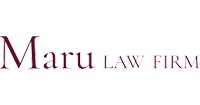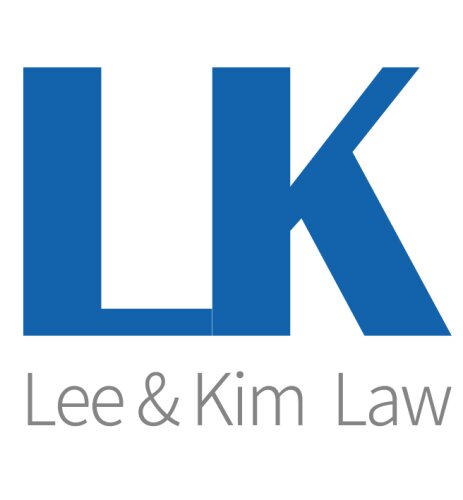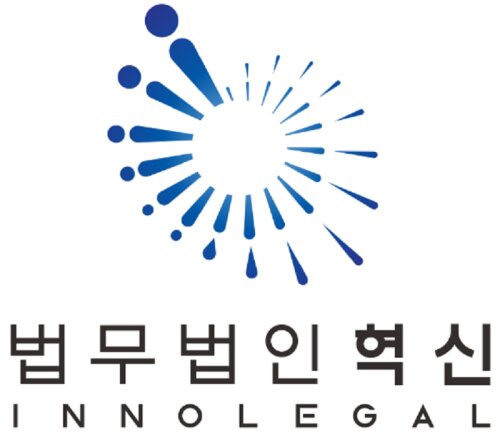Best Conveyancing Lawyers in Seoul
Share your needs with us, get contacted by law firms.
Free. Takes 2 min.
Free Guide to Hiring a Real Estate Lawyer
List of the best lawyers in Seoul, South Korea
About Conveyancing Law in Seoul, South Korea
Conveyancing is the legal process of transferring ownership of real estate property from one person or entity to another. In Seoul, South Korea, this process involves several administrative and legal steps to ensure that the transaction is valid, secure, and complies with all relevant regulations. Conveyancing in Seoul includes property sales, purchases, leases for extended periods, and other real estate transactions. The process typically requires the expertise of licensed lawyers, real estate agents, and government offices to successfully navigate the often complex legal framework governing property transfers.
Why You May Need a Lawyer
Engaging a lawyer for conveyancing in Seoul can help you avoid potential legal pitfalls and ensure that your property transaction proceeds smoothly. Some common situations where legal assistance is important include:
- Reviewing and drafting sale and purchase agreements
- Conducting due diligence checks on the property title
- Verifying the absence of liens, mortgages, or undisclosed encumbrances
- Facilitating negotiations between buyers and sellers
- Handling disputes arising from property boundaries or ownership claims
- Ensuring compliance with local laws, regulations, and taxes
- Protecting the interests of foreign buyers unfamiliar with the local market
By consulting a conveyancing lawyer, individuals can safeguard their investments and reduce the risk of costly mistakes during property transactions.
Local Laws Overview
Conveyancing in Seoul is governed by several key laws and regulations. Noteworthy aspects include:
- The Registration of Real Estate Act requires that all property transactions be registered with the local district office to become legally effective.
- The Act on Ownership and Management of Aggregate Buildings is relevant for apartment transactions, stipulating how ownership and management are divided among occupants.
- Foreigners can purchase property in South Korea, but they must report the transaction to local authorities under the Foreigners’ Land Acquisition Act.
- All property is subject to rigorous title searches to check for any existing mortgages, seizures, or legal claims before transfer.
- Buyers and sellers are subject to taxes such as acquisition tax, registration tax, capital gains tax, and value-added tax (in certain cases).
- Escrow services are commonly used to secure funds during the transaction, preventing fraud or breach of contract.
Anyone involved in a property transaction should seek to understand these local laws, as failure to comply can result in voided transfers or significant legal liabilities.
Frequently Asked Questions
What documents are required to transfer property ownership in Seoul?
Usually, you need the property title deed, registration certificate, purchase contract, identification documents of the parties, and proof of tax payments. Additional documents may be required for foreign buyers.
How long does the conveyancing process take?
The process can often be completed within 2 to 4 weeks, but complex cases, financing delays, or legal disputes may extend the timeframe.
Is it necessary to hire a lawyer for conveyancing in Seoul?
Although not strictly required by law, hiring a lawyer is highly recommended to prevent legal issues, particularly for foreigners or when dealing with high-value transactions.
Can foreigners buy property in Seoul?
Yes, foreigners can buy property, but they must fulfill certain reporting requirements and abide by relevant laws such as the Foreigners’ Land Acquisition Act.
Are there any restrictions on what type of property foreigners can purchase?
Generally, there are no restrictions on property type, but purchasing land in designated military or other restricted zones may be limited or require additional permissions.
What taxes are payable on property transactions?
Common taxes include acquisition tax, registration tax, capital gains tax, and sometimes value-added tax. The rates depend on property type, value, and transaction conditions.
What is an escrow service, and is it required?
Escrow services securely hold the buyer's funds until all conditions of the sale are met. While not legally required, they are strongly recommended to reduce fraud risk.
How is property ownership registered?
Ownership is legally transferred and recognized only after registration at the local district office, accompanied by the payment of registration fees and taxes.
What checks should be done before purchasing property?
Title searches, verification of legal encumbrances, outstanding taxes, and confirmation of previous ownership records are essential. A lawyer or real estate professional usually handles these checks.
What happens if there are disputes after purchase?
Disputes may involve title issues, misrepresentation, or boundary disagreements. Resolutions can come from negotiation, mediation, or, if necessary, legal proceedings in court.
Additional Resources
Below are some resources and organizations that may assist individuals seeking conveyancing advice in Seoul:
- Seoul Metropolitan Government Office: Handles property registrations and provides guidance on local regulations.
- Ministry of Land, Infrastructure and Transport: Offers information about real estate transactions, policies, and foreign ownership regulations.
- Korean Bar Association: Provides access to legal professionals specializing in real estate and conveyancing law.
- Korea Real Estate Board: Maintains property listings, price trends, and market data.
- Civic Legal Aid Centers: Offer basic legal assistance or referrals for individuals needing more structured legal support.
Next Steps
If you are considering or currently involved in a property transaction in Seoul, here are recommended steps to ensure a smooth conveyancing process:
- Collect all necessary documentation related to the property and your identification.
- Consult with a reputable conveyancing lawyer or real estate agent knowledgeable in Seoul’s regulations.
- Conduct due diligence, including title searches and verification of encumbrances or claims.
- Clarify the timeline, taxes, and fees applicable to your specific transaction.
- Utilize escrow or secure payment services for financial security.
- Register the transaction promptly with the local district office to finalize legal ownership.
- If you encounter problems or disputes, consider mediation services or contact a specialized lawyer for further advice.
Taking these steps can greatly reduce the risks associated with property transactions and help protect your financial and legal interests in Seoul.
Lawzana helps you find the best lawyers and law firms in Seoul through a curated and pre-screened list of qualified legal professionals. Our platform offers rankings and detailed profiles of attorneys and law firms, allowing you to compare based on practice areas, including Conveyancing, experience, and client feedback.
Each profile includes a description of the firm's areas of practice, client reviews, team members and partners, year of establishment, spoken languages, office locations, contact information, social media presence, and any published articles or resources. Most firms on our platform speak English and are experienced in both local and international legal matters.
Get a quote from top-rated law firms in Seoul, South Korea — quickly, securely, and without unnecessary hassle.
Disclaimer:
The information provided on this page is for general informational purposes only and does not constitute legal advice. While we strive to ensure the accuracy and relevance of the content, legal information may change over time, and interpretations of the law can vary. You should always consult with a qualified legal professional for advice specific to your situation.
We disclaim all liability for actions taken or not taken based on the content of this page. If you believe any information is incorrect or outdated, please contact us, and we will review and update it where appropriate.















